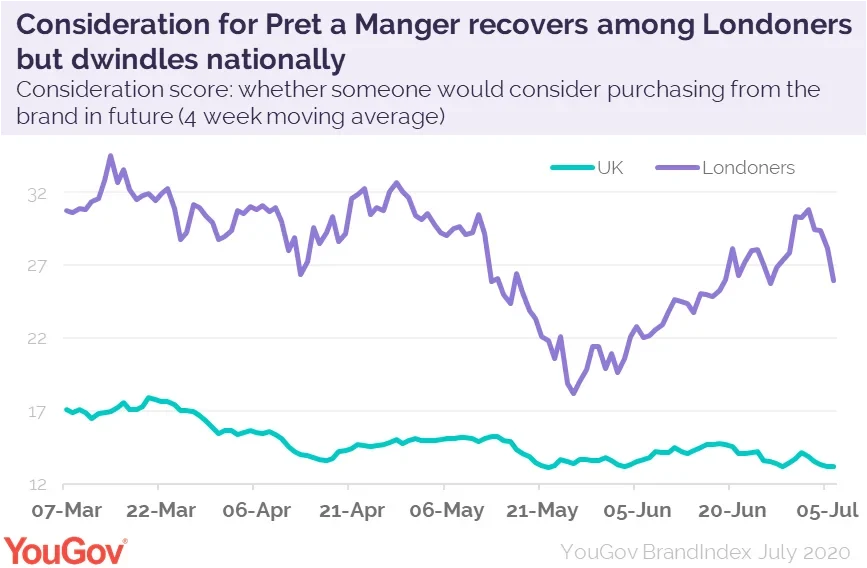In my previous column I discussed how Pret A Manger’s COVID-19 response earned them admiration from the British public by carefully planning store openings, abiding with social distancing measures and offering free NHS worker perks. Unfortunately it appears that this hasn’t been enough to ensure the brand survives coronavirus completely intact.
This week Pret A Manger confirmed plans to close stores after seeing a 74% decrease in sales year-on-year. The sandwich chain’s chief executive announced the closure of 30 stores and 1,000 job losses after struggling to pay rent.
While Britons have been told by the Government to work from home whenever possible, many businesses that rely on commuters and office workers such as commuter newspapers and coffee shops have seen their customer base decimated over the past few months, leading to business closures nationwide.
Since the start of lockdown many fast food and coffee brands have seen significant decreases in customer numbers, demonstrated by New YouGov BrandIndex data for four major convenience food brands between March and June.
Pret A Manger’s Current Customer scores dropped by 3.9 points from March (whole month score of 4.9) to June (1.0). Similarly Starbucks saw a drop of 4.9 points, 12.2 points for Costa Coffee, and 4.6 points for Café Nero in the same time period.
While Pret a Manger’s UK Consideration scores (whether someone would consider purchasing from the brand in future) have declined from 17.1 at the start of lockdown to 13.1 in July, Consideration scores among those who live in the city of London tell a much more positive story. Scores remained fairly steady from March (30.8) until May (30.5) before dropping to 18.2. However, since then scores have recovered to pre-lockdown levels (30.8) implying Londoners are happy to pick up pre-coronavirus shopping habits once things return to ‘normal’.

The majority of Pret a Manger’s stores are in London with those outside the capital usually in shopping or town centres. The fact that the majority of the stores earmarked to close are in these locations implies Pret doesn’t expect shopper demand to increase enough in time to make these stores viable.
Image: Getty











